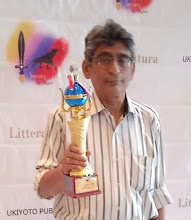As anticipated, the political masters of Pakistan have finally directed its national cricket team to lift the boycott and play India on 15 February, 2026, as scheduled in Colombo . The Masters must've thought the money at stake is too lucrative to continue indulging in such kind of grumpy politics. Of course, they had imposed some pre-conditions that included making the 'handshake' a mandatory protocol, but the ICC looked the other way. So, the PCB takes it as protecting the 'spirit of cricket'. The Indian cricket board , the sponsors, the TV channels and millions of fans who do not necessarily mix patriotism with sports, if it's cricket in particular, must be deliriously ecstatic that all the revenues and hype and excitement shall be there for harvest thr oughout the ICC Men's T20 World Cup-2026 , co-hosted by India and Sri Lanka . Most of the Indians fans must also be ecstatic to have their heroes go on vanquishing the enemy neighbor and humiliating t...
Article first published as The Other Side of Midnight on Technorati.
War cries suddenly pierced the still and freezing midnight hour of December 29, 2011 in New Delhi—capital of India. The elected representatives of the upper house of Indian Parliament came out of the house shouting ‘Murder of democracy’ or ‘A black day’ or ‘The biggest fraud of the government’. Why? Not because the anti-corruption Bill could not get passed even after nearly 13 hours of debate, but because the Bill was not allowed to be defeated.
Lok Sabha, the lower house of Indian Parliament, passed the Lokpal Bill (anti-corruption Ombudsmen Bill) just before 11 in the night of December 27 after nearly 12 hours of debate. The coalition government had a working majority in the house and with a few gives and takes in terms of amendments suggested by opposition parties the Bill could be passed finally. But it had to be passed in Rajya Sabha, the upper house of Indian Parliament, too to become law.
War cries suddenly pierced the still and freezing midnight hour of December 29, 2011 in New Delhi—capital of India. The elected representatives of the upper house of Indian Parliament came out of the house shouting ‘Murder of democracy’ or ‘A black day’ or ‘The biggest fraud of the government’. Why? Not because the anti-corruption Bill could not get passed even after nearly 13 hours of debate, but because the Bill was not allowed to be defeated.
Lok Sabha, the lower house of Indian Parliament, passed the Lokpal Bill (anti-corruption Ombudsmen Bill) just before 11 in the night of December 27 after nearly 12 hours of debate. The coalition government had a working majority in the house and with a few gives and takes in terms of amendments suggested by opposition parties the Bill could be passed finally. But it had to be passed in Rajya Sabha, the upper house of Indian Parliament, too to become law.
The scenario was very clear. Everybody knew the coalition government was a minority in terms of numbers in the upper house. Relishing this fact the opposition political parties who supported the same Bill in the lower house decided to tear into it just to gear up for the most excite prospect of a number game. The parties were also gifted a day in-between, because the formalities could not be completed and so the Bill could not be presented on December 28 as planned. One or two allies of the coalition government too could not fend off the temptation of indulging themselves in the number game.
As the debate progressed as many as 187 amendments were submitted by the opposition parties. There was so much enthusiasm that they cited one clause and suggested amendment to another in a few illustrative cases. They also announced their willingness to sit out the full night to finish off with the Bill. The winter session was extended by three days for this debate and so technically the session was valid till 12 midnight of December 29 and not beyond that.
To its consternation, the coalition government realized that with its minority status it could hardly prevent the 187 amendments from getting passed and in that eventuality the final shape of the Bill would not be the one already passed in the lower house. So the government finally took resort to the technicality factor of the session not being possible to be extended beyond the zero hour and the house was adjourned sine die. Crying murder the disappointed opposition parties condemned the government that ‘ran away from the debate’ and demanded its resignation.
Team Anna had been demanding a strong Bill all the while and it was not at all clear at midnight that the 187 amendments would indeed ensure that. In a country where corruption has taken deep roots the ‘strong’ or ‘weak’ forms of the Bill will entirely depend on how ‘strong’ or ‘weak’ the vested interest groups are. It is no secret that every political party in India serves and protects at least one vested interest group.
The government had reiterated that the debate was not over and it would be taken up again in the budget session in about two months paving way for the passing of an effective and strong Lokpal Bill. At the moment this particular result seemed to have benefited all except, of course, the eagerly waiting right-minded citizens of India. The government has got more time to think about it; the opposition has got more time to ponder and to take the issue for forthcoming assembly elections campaign and Team Anna has got another boost to start the movement anew.
As far as India is concerned it’s the numbers that always count and matter.


Comments
Post a Comment
Hi! Welcome! Please comment what you feel! 😊